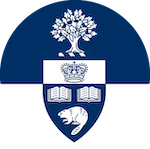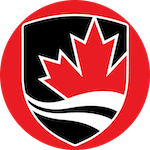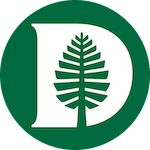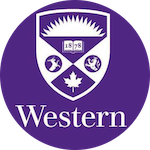Librarian I: Knowledge Synthesis Centre Research Librarian, Geoffrey R. Weller Library
The property
Librarian I
Knowledge Synthesis Centre Research Librarian
Geoffrey R. Weller Library
Full-Time, Term
Posting #FALI01-23 NA
The University of Northern British Columbia (UNBC) invites applications for a regular term position in the Geoffrey R. Weller Library at the rank of Librarian I, with a proposed starting date of February 1, 2024. As an institution committed to the fostering of an inclusive and transformative learning environment, UNBC values high quality and growth in both teaching and scholarship.
The University of Northern British Columbia is seeking a Knowledge Synthesis Centre Research Librarian in the Health Research Institute (HRI) to support and undertake activities of the Knowledge Synthesis Centre. The Knowledge Synthesis (KS) Centre provides capacity for UNBC and external partners to integrate health literature and consolidate information to answer health focused questions using synthesis methods. The Librarian will provide academic leadership for non-UNBC faculty led or partnered projects, contracted to the KS Centre by external partners. In addition, they will provide support for the KS Centre Research Associate in the advancement of knowledge synthesis approaches and techniques.
Located on the Prince George Campus, the Librarian will join a small team of dedicated librarians in enhancing research and learning at UNBC. This position will bring experience and interest in information literacy instruction, collection development, and in-person and online research help to UNBC. All Librarians at UNBC engage in liaison work with programs in the Five Faculties at UNBC. This position will work with the Schools of Nursing and Health Sciences within the Faculty of Human and Health Sciences.
Key responsibilities will include, but not limited to:
- Supporting the Health Research Institute Leadership Council in running a knowledge synthesis program within the Health Research institute and related protocols;
- Working collaboratively and/or advising UNBC faculty and external research partners to develop knowledge synthesis projects, including providing methodological supports and expertise; and training for synthesis resources;
- Developing research proposals in collaboration with UNBC Faculty;
- Planning, implementing, and completing research knowledge synthesis projects;
- Providing guidance to Research Assistants and trainees;
- Supporting research analysis and manuscript development, including co-authoring papers (preparation of peer-reviewed publications);
- Developing knowledge translation products;
- Presenting findings from knowledge syntheses;
- Providing reference or research help to students, faculty, and/or other stakeholders;
- Provides proactive outreach and liaison roles in support of faculty, students, and staff in identified programs, to promote library collections and services;
- Library resource acquisition and evaluation; and
- Lead and participate in assessment activities to support continuous improvement of library and research services.
Under the supervision of the University Librarian, with support from the HRI Manager, the Knowledge Synthesis Centre Research Librarian will support the HRI Knowledge Synthesis Centre and related tasks.
Applicants for this position should have the following qualifications:
- Graduate degree from an accredited program of library, or information science, or equivalent Internationally accredited program. A PhD would be considered an asset;
- Demonstrated expertise in different knowledge synthesis and research methods, knowledge translation and exchange, and research navigation;
- Experience in providing liaison and reference support in an academic library environment;
- Proven communication and teamwork skills. Experience in research dissemination such as authorship on academic publications and experience with presentations would be an asset;
- While an on-campus arrangement is preferred, the University may agree to a remote arrangement in the event a physical relocation to Prince George is not feasible and on the basis the incumbent is working in British Columbia; and
- Please note that UNBC offers relocation assistance to Term Members (Article 51.7).
The successful applicant will have opportunities to receive authorship on publications and to present research findings at research meetings and academic events, dependent on funding availability.
Occasional weekend and evening work may be required.
Our Commitment to Diversity and Employment Equity
The University of Northern British Columbia is fully committed to creating and maintaining an equitable, diverse, and inclusive environment that is accessible to all. We are devoted to ensuring a welcoming, safe, and inclusive campus free from harassment, bullying, and discrimination. This commitment is woven into our motto and mission. In the Dakelh language, UNBC’s motto ‘En Cha Huná translates to “he/she/they also live” and means respect for all living things. Through the respect for all living things, we are able to grow and learn better together, each bringing our own unique individual differences and contributions to inspire leaders for tomorrow by influencing the world today.
Employment equity requires that we remove barriers and overcome both direct and indirect discrimination. In this way, the pool of excellent candidates increases substantially. We encourage applications from members of groups that have been marginalized on any grounds enumerated under the B.C. Human Rights Code, including sex, sexual orientation, gender identity or expression, racialization, disability, political belief, religion, marital or family status, age, and/or status as a First Nation, Metis, Inuit, or Indigenous person.
About the University and its Community
Since its founding in 1990, the University of Northern British Columbia (UNBC) has emerged as one of Canada’s best small research-intensive universities, with a passion for teaching, discovery, people, and the North. UNBC’s excellence is derived from community-inspired research, hands-on learning, and alumni who are leading change around the world.
Since time immemorial, Indigenous peoples have walked gently on the diverse traditional territories where the University of Northern British Columbia community is grateful to live, work, learn, and play. We are committed to building and nurturing relationships with Indigenous peoples, we acknowledge their traditional lands, and we thank them for their hospitality. UNBC’s largest campus in Prince George is located on the traditional unceded territory of the Lheidli T’enneh, in the spectacular landscape near the geographic centre of beautiful British Columbia.
UNBC’s three regional campuses are located in Quesnel, Fort St. John, and Terrace. The South-Central campus in Quesnel is situated on the traditional territory of the Lhtako Dené (Red Bluff Band), Nazko, Lhoosk’uz Dené Nation (Kluskus Band), and Esdilagh First Nations (formerly Alexandria Band). Lhtako, Nazko, and Lhoosk’uz are Dakelh First Nations, and Esdilagh is a member of the Tsilhqot’in Nation. The Peace River-Liard campus in Fort St. John is situated on the traditional territory of the Doig River, Blueberry River and Halfway River First Nations. They are the Dunne-Za people. The Northwest campus in Terrace is situated on traditional Ts’msyen (Tsimshian) territory of the Kitsumkalum and Kitselas First Nations. It includes a satellite campus in the coastal community of Prince Rupert.
UNBC consistently ranks in the top three in its category in the annual Maclean’s university rankings. UNBC also recently placed among the top five per cent of higher education institutions worldwide by the Times Higher Education World University Rankings.
With a diverse student population, the University is friendly, inclusive, and supportive. Prince George is a city of ~74,000 people with impressive cultural, educational, and recreational amenities. For more information about living and working in Prince George, please refer to http://www.unbc.ca/experience and https://moveupprincegeorge.ca. Make your mark with this leading post-secondary institution.
Salary
The salary for this position will be determined with consideration of the successful candidate’s relevant qualifications and experience as per the UNBC Faculty Association Collective Agreement. The annual salary range for this position is expected to be from $78,389 to $85,662. Please refer to the link below to the Collective Agreement (Article 48) for more compensation information:
To Apply
Applicants should forward the following documents to FacultyRecruitment@unbc.ca or mail to Office of the Provost quoting the posting number (#FALI01-23 NA):
- cover letter indicating potential contributions to the Program;
- curriculum vitae;
- a brief statement of teaching approaches and research program;
- the names and addresses of three references (including telephone and email information); and
- the Statement of Eligibility to Work in Canada form, which can be found here: https://www2.unbc.ca/sites/default/files/sections/human-resources/statementofemploymenteligibilityjan0520221.pdf.
Voluntary Form:
- the Self-Identification from, which can be found here: https://www2.unbc.ca/sites/default/files/sections/human-resources/unbcself-idrevisedmay2022-fillable.pdf
Persons with disabilities, who anticipate needing accommodation for any part of the application and hiring process, may contact UNBC Health & Wellbeing at wellbeing@unbc.ca. Any personal information provided will be maintained in confidence.
Mail Submissions: Office of the Provost, University of Northern British Columbia
3333 University Way, Prince George, B.C., V2N 4Z9
Email Submissions: FacultyRecruitment@unbc.ca
Inquiries: Dr. Trina Fyfe, Interim University Librarian
250-960-6612
All qualified candidates are encouraged to apply; however, Canadians and permanent residents will be given priority. We thank all applicants for their interest in UNBC however, only those applicants selected for further consideration will be contacted.
Applications received on or before December 31, 2023, will receive full consideration; however, applications will be accepted until the position is filled.










Sorry, the comment form is closed at this time.